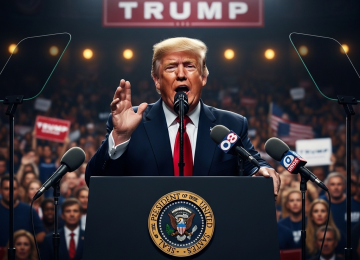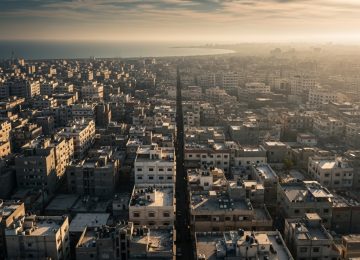5 Ways a Public Health Emergency Impacts Global Politics
When a pathogen crosses borders and threatens populations worldwide, the response is never purely medical. The declaration of a public health emergency is a critical turning point that ignites a cascade of political, economic, and social consequences. These emergencies serve as a global stress test, revealing the fault lines in international relationships, the stability of economies, and the very fabric of domestic governance. Understanding these impacts is essential for navigating an increasingly interconnected world where a crisis in one corner can rapidly become a crisis for all.

While doctors and scientists work on the front lines to contain a disease, politicians and diplomats engage in a high-stakes chess match behind the scenes. The decisions made in government chambers and international forums can be just as crucial as those made in laboratories. From the allocation of scarce resources to the implementation of travel restrictions, every action is laden with political significance. Let’s explore the five most significant ways a public health emergency reshapes global politics.
What Constitutes a Public Health Emergency?
Before diving into the political ramifications, it’s important to understand what a public health emergency entails. Officially, a Public Health Emergency of International Concern (PHEIC) is a formal declaration made by the World Health Organization (WHO) for “an extraordinary event which is determined to constitute a public health risk to other States through the international spread of disease and to potentially require a coordinated international response.” This declaration is not made lightly. It signals that the situation is serious, sudden, unusual, or unexpected, with implications for public health beyond the affected nation’s border.
The declaration triggers specific recommendations for all countries, aimed at preventing or reducing the cross-border spread of disease while avoiding unnecessary interference with international traffic and trade. However, the interpretation and implementation of these recommendations often become intensely political, setting the stage for significant global shifts.
1. Reshaping International Alliances and Tensions
A global health crisis acts as a powerful catalyst, either strengthening alliances or exacerbating existing tensions. In the best-case scenario, a common threat fosters unprecedented cooperation. Nations share data, pool research efforts, and provide mutual aid, reinforcing diplomatic ties. We often see allies airlifting medical supplies and personnel to hard-hit regions, a powerful display of soft power and solidarity.
Conversely, a public health emergency can easily become a blame game. Nations may accuse one another of a lack of transparency, a slow response, or even of originating the crisis. This can lead to diplomatic standoffs, trade disputes, and a general erosion of trust. Finger-pointing becomes a political tool used to deflect domestic criticism and rally a nationalist base. Long-standing rivalries can intensify as countries compete for influence and control over the narrative of the crisis, turning a health issue into a geopolitical battleground.

2. Triggering Major Economic and Trade Disruptions
The economic fallout from a public health emergency is swift and severe, and its management is inherently political. Governments must balance public health measures with economic stability. The decision to close borders, ground flights, and lock down cities has massive consequences for global supply chains, tourism, and trade.
These measures, while medically necessary, can be weaponized. A country might impose stricter or longer-lasting travel bans on a rival nation than on an ally, using health as a pretext for economic pressure. Global supply chains for essential goods, from pharmaceuticals to microchips, can be disrupted, forcing nations to re-evaluate their dependencies. This often leads to a political push for onshoring or “friend-shoring” critical industries—a move to bring manufacturing back home or to allied nations. This fundamentally alters global trade patterns and can lead to the formation of new economic blocs, reshaping the world economy for years to come.
3. The Rise of Resource Nationalism
During a public health emergency, medical resources like personal protective equipment (PPE), ventilators, therapeutics, and vaccines become the world’s most valuable commodities. This scarcity inevitably leads to “resource nationalism,” where governments prioritize their own citizens by restricting or banning the export of these critical goods. While understandable from a domestic political standpoint, this “my-nation-first” approach can be devastating for global containment efforts.
This dynamic often evolves into what is known as “vaccine diplomacy,” where countries with manufacturing capabilities use their surplus doses as a tool of foreign policy.
- Donating or selling vaccines to other nations can be used to curry favor, secure resources, or gain a strategic foothold in a region.
- Controlling the supply of vaccine components can give a country immense leverage over others.
- It creates a clear hierarchy of nations, separating the “haves” from the “have-nots” and leading to accusations of hoarding and inequality.
This competition undermines global solidarity and can prolong the emergency by allowing the disease to continue spreading in unprotected populations.
4. Increased Scrutiny on Governments and Institutions
A widespread health crisis places both national governments and international organizations under an intense microscope. A government’s handling of a public health emergency becomes a defining test of its competence and legitimacy. Citizens judge their leaders on the speed of their response, the clarity of their communication, and the effectiveness of their policies. A poor response can lead to public outrage, protests, and even the fall of a government.
Simultaneously, international bodies like the World Health Organization (WHO) face immense pressure. They are criticized by some nations for acting too slowly or for being politically influenced by others. Their recommendations are scrutinized, and their authority is challenged. This can lead to political battles within these organizations, with member states vying for control or threatening to withdraw funding, which weakens the very institutions designed to manage such crises. The performance of these bodies during an emergency can either reinforce the case for global cooperation or fuel nationalist arguments for dismantling them.
5. Accelerating Changes in Domestic Policy and Surveillance
Finally, a public health emergency acts as an accelerant for significant, and often permanent, changes in domestic policy. To manage the crisis, governments often grant themselves extraordinary powers. These can include:
- Implementing widespread surveillance programs, such as contact tracing apps.
- Restricting freedom of movement and assembly.
- Mandating health measures like vaccinations or testing.
While these are often framed as temporary necessities, they set a precedent. The state apparatus for surveillance and control, once built, is rarely dismantled entirely. This creates an ongoing political debate about the balance between public safety and individual liberty. Furthermore, a major health crisis can expose weaknesses in a country’s healthcare system, leading to massive political movements to overhaul public health funding, infrastructure, and policy for years after the emergency has passed.
In conclusion, a public health emergency is a profoundly political event. It tests the resilience of our global systems, redefines international power dynamics, and forces a re-evaluation of the relationship between the state and its citizens. The lessons learned from each crisis shape the political landscape for decades, highlighting the inextricable link between health security and global stability.















